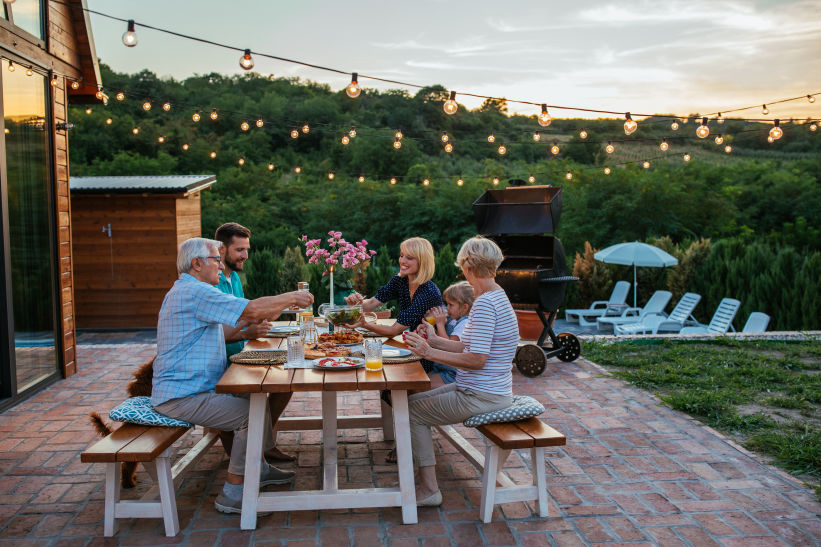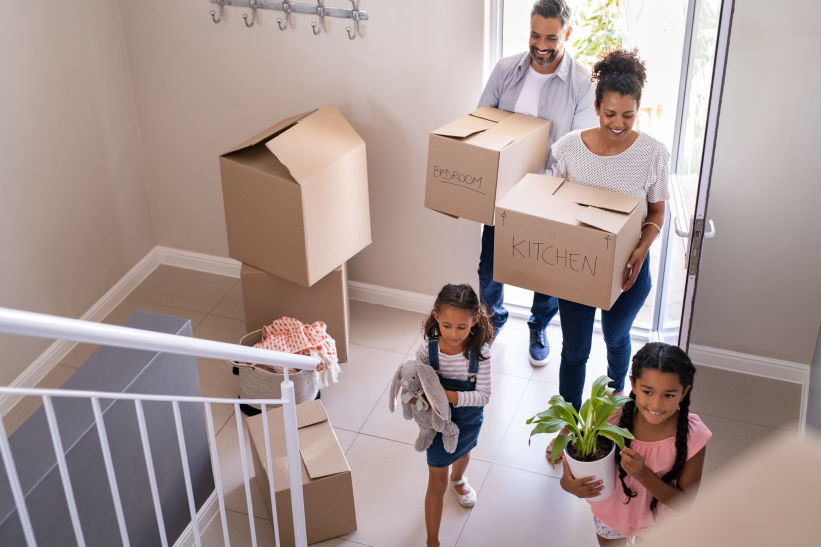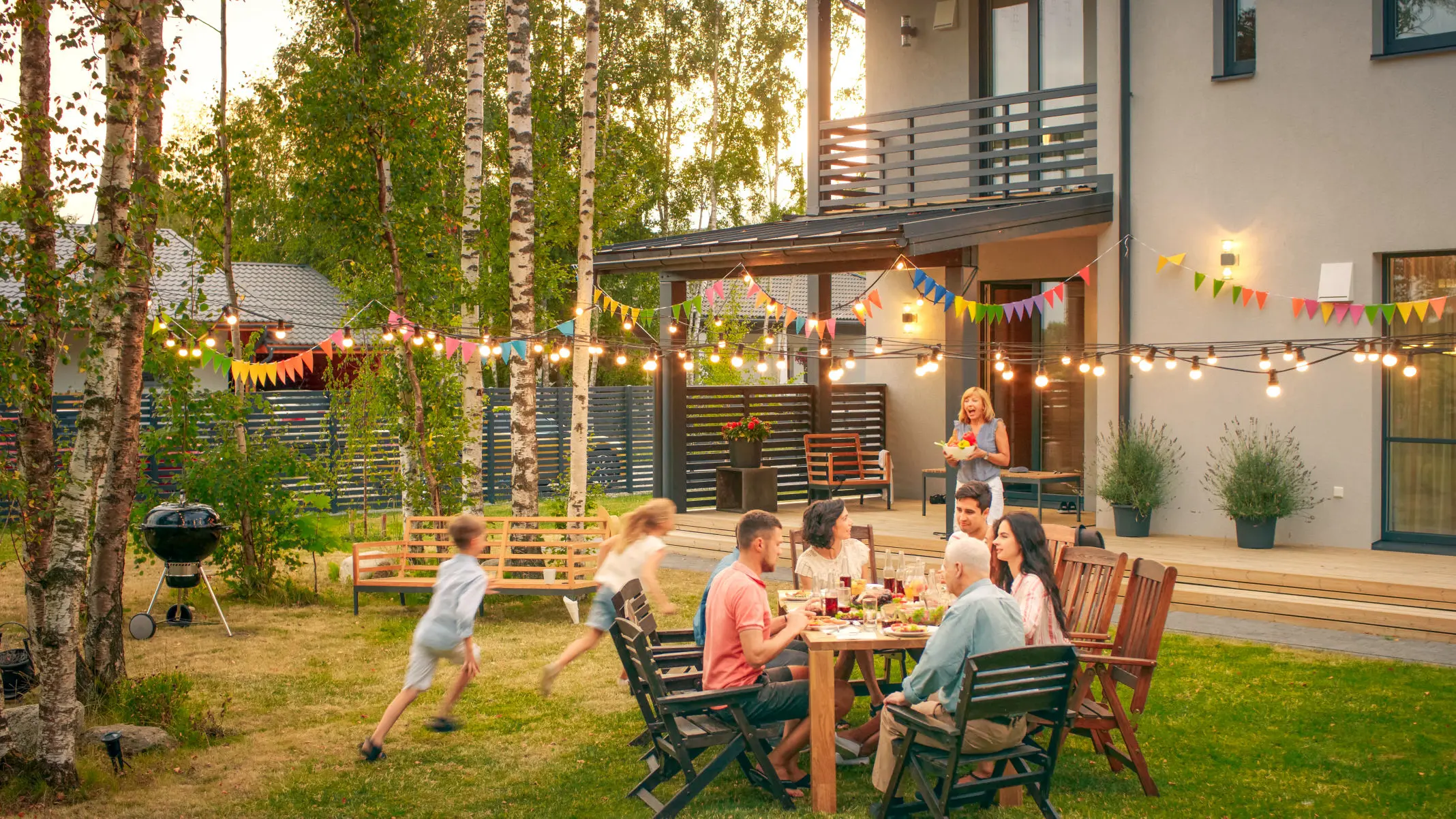


With an annual compensation of $450,000, you’ll find that your income stretches significantly further in Baton Rouge than in most metropolitan markets. The city’s overall cost of living is about 8–10% below the national average, and far lower than comparable physician markets like Houston, Dallas, or Atlanta. This affordability allows you to enjoy a spacious home, excellent schools, fine dining, and weekend getaways—all without financial stress.
Housing represents one of the most significant advantages for physicians relocating to Baton Rouge. Whether you prefer a lakefront property, a gated community near top schools, or a custom build on several acres, your income easily supports your ideal lifestyle. With median home prices around $285,000, you’ll spend far less of your monthly income on housing than physicians in larger cities.
Louisiana’s tax structure and overall expenses work in your favor. While the state has a modest income tax (ranging from 1.85% to 4.25%), property taxes remain among the lowest in the nation, typically below 0.5% of assessed home value. This allows you to redirect significant income toward travel, savings, or leisure without feeling overextended.
When you compare Baton Rouge’s affordability to larger urban centers, the difference in lifestyle is dramatic. The same $450,000 salary that might feel constrained in Houston or Miami provides true financial independence here. You can comfortably fund private schooling, invest in real estate, and enjoy premium leisure experiences—all while building long-term wealth.
Living in Baton Rouge means earning like a metropolitan physician but living with freedom and peace of mind. Your compensation goes further, your expenses stay predictable, and your quality of life remains exceptional—allowing you to focus on what matters most both inside and outside of medicine.
In Baton Rouge, you’ll find housing that perfectly balances Southern elegance, modern comfort, and financial sense. Whether you envision a lakeside retreat, a stately home beneath oak canopies, or a sleek new-construction property close to the city’s amenities, the market here offers remarkable value—especially at your income level of $450,000 annually.
The median home price in Baton Rouge is around $285,000, while desirable executive properties in the city’s top neighborhoods range between $600,000 and $900,000. These homes often include generous floor plans, chef’s kitchens, outdoor entertaining areas, and private pools—features that would cost twice as much in larger Southern metros.
Baton Rouge’s neighborhoods each offer their own character, from historic charm to modern luxury. The Garden District exudes old-world elegance with restored early-20th-century homes beneath mature oak trees. For newer, family-oriented communities, University Club Plantation and Santa Maria provide golf-course living, gated security, and quick commutes to major medical centers.
For physicians relocating from out of state, the rental market provides excellent short-term options while you explore neighborhoods. Upscale townhomes and single-family rentals are widely available in safe, desirable areas near hospitals and major roadways.
Architectural styles in Baton Rouge reflect the city’s layered history—Colonial, Creole, and French influences meet contemporary design. New developments emphasize energy efficiency and open-concept layouts, while older neighborhoods showcase charming brick and stucco homes with spacious porches and courtyards.
With low property taxes, stable appreciation, and diverse housing options, Baton Rouge offers one of the most attractive homeownership opportunities in the Gulf South. Here, you’re not just buying a home—you’re investing in a lifestyle that blends comfort, community, and enduring value.



Baton Rouge is a capital city that feels like a collection of neighborhoods—each with its own identity, rhythm, and strong sense of community. Residents value both connection and vigilance, and local leaders continue to invest in safety infrastructure, neighborhood initiatives, and emergency services to ensure a secure environment for families and professionals alike. While Baton Rouge shares the challenges of any urban area, many of its neighborhoods maintain crime rates well below national averages, offering the comfort and stability physicians and their families seek.
For relocating physicians, several communities consistently earn high marks for security, maintenance, and neighbor engagement. Gated developments and suburban enclaves around South Baton Rouge, Ascension Parish, and the LSU area combine modern amenities with a tight-knit community culture.
As a regional healthcare hub, Baton Rouge prioritizes emergency response and disaster preparedness. The area’s hospitals—including Our Lady of the Lake Regional Medical Center, Baton Rouge General, and Ochsner Medical Center–Baton Rouge—maintain advanced trauma and emergency capabilities. The city also benefits from comprehensive hurricane planning developed through decades of Gulf Coast experience.
Beyond statistics, Baton Rouge’s safety culture thrives on neighborly watchfulness and mutual respect. Families look out for one another, and communities organize frequent meet-and-greets, watch programs, and volunteer patrols. This sense of shared responsibility is one of the key reasons so many professionals choose to build long-term lives here.
Baton Rouge offers the comfort of connection—where security comes not just from patrols and plans, but from people who care about their neighbors. It’s a place where you can work with confidence and return home each day knowing your family feels safe, supported, and at home.
